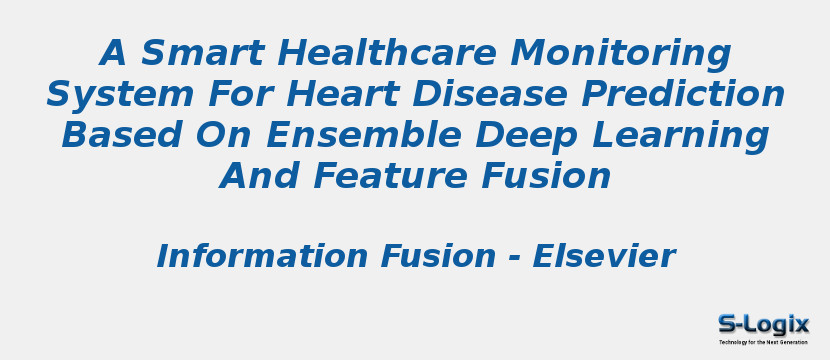Research Area: Machine Learning
The accurate prediction of heart disease is essential to efficiently treating cardiac patients before a heart attack occurs. This goal can be achieved using an optimal machine learning model with rich healthcare data on heart diseases. Various systems based on machine learning have been presented recently to predict and diagnose heart disease. However, these systems cannot handle high-dimensional datasets due to the lack of a smart framework that can use different sources of data for heart disease prediction. In addition, the existing systems utilize conventional techniques to select features from a dataset and compute a general weight for them based on their significance. These methods have also failed to enhance the performance of heart disease diagnosis. In this paper, a smart healthcare system is proposed for heart disease prediction using ensemble deep learning and feature fusion approaches. First, the feature fusion method combines the extracted features from both sensor data and electronic medical records to generate valuable healthcare data. Second, the information gain technique eliminates irrelevant and redundant features, and selects the important ones, which decreases the computational burden and enhances the system performance. In addition, the conditional probability approach computes a specific feature weight for each class, which further improves system performance. Finally, the ensemble deep learning model is trained for heart disease prediction. The proposed system is evaluated with heart disease data and compared with traditional classifiers based on feature fusion, feature selection, and weighting techniques. The proposed system obtains accuracy of 98.5%, which is higher than existing systems. This result shows that our system is more effective for the prediction of heart disease, in comparison to other state-of-the-art methods.
Keywords:
Author(s) Name: Farman Ali,Shaker El-Sappagh,S.M. Riazul Islam,Daehan Kwak,Amjad Ali,Muhammad Imran,Kyung-Sup Kwak
Journal name: Information Fusion
Conferrence name:
Publisher name: Elsevier
DOI: 10.1016/j.inffus.2020.06.008
Volume Information: Volume 63, November 2020, Pages 208-222
